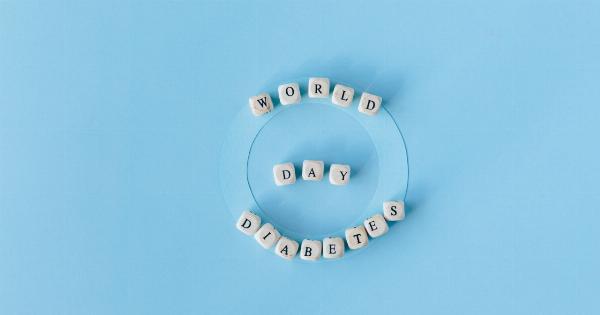As adults, we are told time and again how important it is to get enough fiber into our diet. Fiber is essential for keeping our digestive system healthy, preventing a variety of health conditions, and maintaining a healthy weight.
However, just like anything else, too much of a good thing can be harmful. Here are some warning signs that you may be eating too much fiber:.
1. Excessive Gas and Bloating
Fiber is fermented by the good bacteria in our gut, resulting in the production of gas. This is completely normal, and usually not a problem with a moderate fiber intake.
However, excessive gas and bloating can be a sign that you’re eating too much fiber.
2. Constipation
It is often recommended to increase fiber intake as a remedy for constipation. However, too much fiber can actually worsen the condition. Excess fiber can add bulk to the stool, making it difficult to pass.
3. Diarrhea
On the other end of the spectrum, eating too much fiber can lead to diarrhea. This is because too much fiber can cause the digestive system to speed up, resulting in the elimination of waste before it has had the chance to solidify.
4. Nausea and Vomiting
Eating excessive amounts of fiber can also cause nausea and vomiting. This is because fiber increases the bulk of food in the stomach, causing it to stretch and trigger nausea receptors.
5. Dehydration
Fiber absorbs water, which is one of the reasons why it is important for digestive health. However, consuming too much fiber can result in dehydration. This is because fiber can absorb water from the body, leaving you feeling dehydrated.
6. Abdominal Pain
Excessive fiber intake can cause inflammation in the gut, which can lead to abdominal pain. This pain is often described as a cramping sensation and can be quite severe.
7. Malabsorption
Consuming too much fiber can lead to malabsorption. This is because fiber can bind to minerals and prevent their absorption by the body. This can result in deficiencies of important nutrients like iron and zinc.
8. Reduced Appetite
A high-fiber diet can lead to feelings of fullness and reduced appetite. While this is usually desirable for those looking to lose weight, it can be problematic if you’re consuming too much fiber and not getting enough calories.
9. Weight Loss
If you’re consuming too much fiber and not getting enough calories, weight loss can occur. This can be desirable for some people, but can also be a warning sign that you’re not consuming enough nutrients.
10. Reduced Absorption of Medications
Fiber can also bind to medications and reduce their absorption. This can be particularly problematic for those taking regular medication for chronic conditions.
Conclusion
Fiber is an essential part of our diet. However, consuming too much fiber can have negative consequences. If you’re experiencing any of the above symptoms, it may be a warning sign that you’re consuming too much fiber.
It’s important to balance your fiber intake with your overall nutrient needs, and to listen to your body to determine what works best for you.































